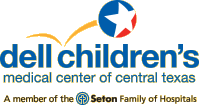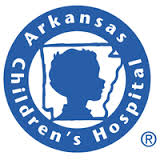Efficacy Study Of Tofacitinib In Pediatric JIA Population
| Status: | Recruiting |
|---|---|
| Conditions: | Arthritis |
| Therapuetic Areas: | Rheumatology |
| Healthy: | No |
| Age Range: | 2 - 17 |
| Updated: | 12/20/2018 |
| Start Date: | June 10, 2016 |
| End Date: | May 21, 2019 |
| Contact: | Pfizer CT.gov Call Center |
| Email: | ClinicalTrials.gov_Inquiries@pfizer.com |
| Phone: | 1-800-718-1021 |
Efficacy, Safety And Tolerability Of Tofacitinib For Treatment Of Polyarticular Course Juvenile Idiopathic Arthritis (Jia) In Children And Adolescent Subjects
Evaluate efficacy, safety and tolerability of tofacitinib in pediatric JIA patients.
This is a randomized withdrawal, double blind, placebo controlled study of pediatric subjects
(2 to <18 years of age) with JIA. The primary objective is to compare the efficacy of
tofacitinib versus placebo for the treatment of signs and symptoms of JIA at Week 26 of the
double blind phase as measured by the percentage of subjects with disease flare (according to
PRCSG/PRINTO Disease Flare criteria) after Week 18 of the open label run in phase.All
eligible subjects enrolled in the study will initially receive open label tofacitinib for 18
weeks (run in phase). At the end of the 18 week run in phase, only subjects who achieve at
least a JIA ACR 30 response will be randomized to the 26 week double blind, placebo
controlled phase. Subjects who do not achieve a JIA ACR 30 response at this time point will
be discontinued from the study. In addition, subjects who experience a single episode of
disease flare at any time during the study (including the open label run in and double blind
phase) will also be discontinued from the study. All subjects participating in this study,
including those discontinued from the study, will have the option, if eligible (based on
inclusion and exclusion criteria), of enrolling in the tofacitinib JIA long term extension
study (A3921145).
Subjects who are eligible for the 26 week double blind phase will be randomized (1:1 ratio)
to either active tofacitinib or placebo. For subjects with polyarticular course JIA (ie,
extended oligoarthritis, polyarthritis RF+, polyarthritis RF , systemic JIA with active
arthritis but without active systemic features), randomization will be stratified by JIA
category and baseline CRP (normal, above normal). For subjects with psoriatic and enthesitis
related arthritis, randomization will be stratified by JIA category.
Approximately 210 subjects will be enrolled in the open label run in phase. Among subjects
with polyarticular course JIA, stratification will target at least 50% with a baseline CRP
above the upper limit of normal. The first cohort (ie, polyarticular course JIA) will have at
least 170 subjects enrolled in the run in phase with the minimum number of JIA categories as
follows: 24 with extended oligoarthritis, 20 with polyarthritis RF+, 62 with polyarthritis
RF-, and no minimum for subjects with systemic JIA with active arthritis but without active
systemic features. Additional cohorts (ie, psoriatic and enthesitis related arthritis) will
include a minimum of 20 subjects with psoriatic arthritis, and 20 subjects with enthesitis
related arthritis. The overall target minimum number of subjects to be enrolled in the study
by age is as follows: 20 subjects 2 to <6 years, 20 subjects 6 to <12 years, and 20 subjects
12 to <18 years. The duration of subject participation among those who complete the study
(without discontinuation) is expected to be approximately 44 weeks.
(2 to <18 years of age) with JIA. The primary objective is to compare the efficacy of
tofacitinib versus placebo for the treatment of signs and symptoms of JIA at Week 26 of the
double blind phase as measured by the percentage of subjects with disease flare (according to
PRCSG/PRINTO Disease Flare criteria) after Week 18 of the open label run in phase.All
eligible subjects enrolled in the study will initially receive open label tofacitinib for 18
weeks (run in phase). At the end of the 18 week run in phase, only subjects who achieve at
least a JIA ACR 30 response will be randomized to the 26 week double blind, placebo
controlled phase. Subjects who do not achieve a JIA ACR 30 response at this time point will
be discontinued from the study. In addition, subjects who experience a single episode of
disease flare at any time during the study (including the open label run in and double blind
phase) will also be discontinued from the study. All subjects participating in this study,
including those discontinued from the study, will have the option, if eligible (based on
inclusion and exclusion criteria), of enrolling in the tofacitinib JIA long term extension
study (A3921145).
Subjects who are eligible for the 26 week double blind phase will be randomized (1:1 ratio)
to either active tofacitinib or placebo. For subjects with polyarticular course JIA (ie,
extended oligoarthritis, polyarthritis RF+, polyarthritis RF , systemic JIA with active
arthritis but without active systemic features), randomization will be stratified by JIA
category and baseline CRP (normal, above normal). For subjects with psoriatic and enthesitis
related arthritis, randomization will be stratified by JIA category.
Approximately 210 subjects will be enrolled in the open label run in phase. Among subjects
with polyarticular course JIA, stratification will target at least 50% with a baseline CRP
above the upper limit of normal. The first cohort (ie, polyarticular course JIA) will have at
least 170 subjects enrolled in the run in phase with the minimum number of JIA categories as
follows: 24 with extended oligoarthritis, 20 with polyarthritis RF+, 62 with polyarthritis
RF-, and no minimum for subjects with systemic JIA with active arthritis but without active
systemic features. Additional cohorts (ie, psoriatic and enthesitis related arthritis) will
include a minimum of 20 subjects with psoriatic arthritis, and 20 subjects with enthesitis
related arthritis. The overall target minimum number of subjects to be enrolled in the study
by age is as follows: 20 subjects 2 to <6 years, 20 subjects 6 to <12 years, and 20 subjects
12 to <18 years. The duration of subject participation among those who complete the study
(without discontinuation) is expected to be approximately 44 weeks.
Inclusion Criteria:
1. Male or female aged 2 to <18 years.
2. Must meet International League Against Rheumatism (ILAR) JIA diagnostic criteria for
one of the following categories with active disease for at least 6 weeks:
- Extended oligoarthritis;
- Polyarthritis (RF+);
- Polyarthritis (RF-);
- Systemic JIA with active arthritis but without active systemic features in the
prior 6 months and at the time of enrollment;
- Psoriatic arthritis;
- Enthesitis related arthritis. Subjects with polyarticular course JIA (ie,
extended oligoarthritis, polyarthritis RF+, polyarthritis RF , systemic JIA with
active arthritis but without active systemic features) must have a minimum of 5
active joints (an active joint is defined as a joint with swelling or, in the
absence of swelling, limited range of motion accompanied by either pain on motion
or tenderness) at screening and baseline to be eligible for study entry.
Subjects with psoriatic or enthesitis related arthritis must have a minimum of 3
active joints (an active joint is defined as a joint with swelling or, in the absence
of swelling, limited range of motion accompanied by either pain on motion or
tenderness) at screening and baseline to be eligible for study entry.
Treatment with stable doses of a Non Steroidal Anti inflammatory Drug (NSAID) and/or a
stable dose of an oral glucocorticoid, and/or a stable dose of methotrexate is
permitted.
For subjects receiving an oral glucocorticoid: Glucocorticoids may be administered at
a maximum dose of 0.2 mg of prednisone equivalent per kilogram per day or 10 mg per
day for ≥ 2 weeks before baseline, whichever is lower.
For subjects receiving methotrexate (MTX) treatment: MTX may be administered either
orally or parenterally at doses not to exceed 25 mg/wk or 20 mg/m2/week (whichever is
lower); participants must have taken MTX for 3 months and be at a stable dose for at
least 6 weeks before baseline. Subjects taking MTX must be taking folic acid or
folinic acid in accordance with local standards.
For subjects with psoriatic arthritis, the following topical treatments for psoriasis
are allowed: non medicated emollients for use over the whole body; topical steroids
including hydrocortisone and hydrocortisone acetate ≤1% for the palms, soles, face,
and intertriginous areas only; tar, salicylic acid preparations, and shampoos free of
corticosteroids are permitted only for the scalp
3. Inadequate response or intolerance to at least one Disease Modifying Anti Rheumatic
Drug (DMARD), which may include MTX or biologic agents; in the case of ERA and
psoriatic arthritis, inadequate response to Non Steroidal Anti Inflammatory Drugs
(NSAIDs).
4. No evidence or history of untreated or inadequately treated active or latent
tuberculosis (TB) infection as evidenced by the following:
1. A negative QuantiFERON ®TB Gold In Tube test performed within the 3 months prior
to screening. A negative purified protein derivative (PPD) test can be
substituted for the QuantiFERON® TB Gold In Tube test only if the central
laboratory is unable to perform the test or cannot determine the results to be
positive or negative and the Pfizer medical monitor is informed and agrees on a
case by case basis.
2. Chest radiograph without changes suggestive of active tuberculosis (TB) infection
within 3 months prior to screening is recommended and should be performed
according to local standards of care or country-specific guidelines.
3. No history of either untreated or inadequately treated latent or active TB
infection.
If a subject has previously received an adequate course of therapy for either latent
(9 months of isoniazid in a locale where rates of primary multi drug resistant TB
infection are <5% or an acceptable alternative regimen) or active (acceptable multi
drug regimen) TB infection, neither a PPD test nor a QuantiFERON-Gold®TM test need be
obtained. A chest radiograph should be obtained if not done within the 3 months prior
to screening. To be considered eligible for the study, the chest radiograph must be
negative for active tuberculosis infection.
A subject who is currently being treated for latent TB infection can only be enrolled
with confirmation of current incidence rates of multi-drug resistant TB infection,
documentation of an adequate treatment regimen, and prior approval of the Sponsor.
5. Fertile males and females who are, in the opinion of the investigator, sexually active
and at risk for pregnancy with their partner(s) must be willing and able to use a
highly effective method of contraception as outlined in this protocol during the study
and for at least 28 days after the last dose of study medication.
6 Subjects who are willing and able to comply with scheduled visits, treatment plan,
laboratory tests, and other study procedures.
7. Evidence of a personally signed and dated Informed Consent document and Assent document
(as appropriate) indicating that the subject and a legally acceptable
representative/parent(s)/legal guardian has been informed of all pertinent aspects of the
study.
Exclusion Criteria
Subjects with any of the following characteristics/conditions will not be included in the
study:
1. Previous JIA treatment with tofacitinib.
2. Systemic JIA (sJIA) with active systemic features (including subjects with
characteristic sJIA fever and rash or serositis within 6 months of enrollment).
3. Persistent oligoarthritis.
4. Undifferentiated JIA.
5. Infections:
1. Chronic infections;
2. Any infection requiring hospitalization, parenteral antimicrobial therapy or
judged to be opportunistic by the investigator within the 6 months prior to the
first dose of study drug;
3. Any treated infections within 2 weeks of Baseline visit;
4. A subject know to be infected with Human Immunodeficiency Virus (HIV), Hepatitis
B, or Hepatitis C;
5. History of infected joint prosthesis with prosthesis still in situ.
6. History of recurrent (more than one episode) herpes zoster or disseminated (at least
one episode) herpes zoster, or disseminated (at least one episode) herpes simplex.
7. Active uveitis (according to SUN criteria) within 3 months of enrollment.
8. Blood dyscrasias, including:
1. Hemoglobin <10 g/dL or Hematocrit <33%;
2. White Blood Cell count <3.0 x 109/L;
3. Neutrophil count <1.2 x 109/L;
4. Platelet count <100 x 109/L;
5. Lymphocyte count <0.75 x 109/L.
9. Estimated glomerular filtration rate [GFR] <40 mL/min/1.73 m2 at Screening. GFR will
be calculated by the central lab using the bedside Schwartz formula.
10. Current or recent history of uncontrolled clinically significant renal, hepatic,
hematologic, gastrointestinal, metabolic, endocrine, pulmonary, cardiac or neurologic
disease.
11. Aspartate aminotransferase (AST) or alanine aminotransferase (ALT) ≥1.5 times the
upper limit of normal.
12. History of any other rheumatologic disease, other than Sjogren's syndrome..
13. History or current symptoms suggestive of lymphoproliferative disorders (eg, Epstein
Barr Virus [EBV] related lymphoproliferative disorder, lymphoma, leukemia, or signs
and symptoms of current lymphatic disease).
14. Vaccinated or exposed to a live or attenuated vaccine within the 6 weeks prior to the
first dose of study drug, or is expected to be vaccinated or to have household
exposure to these vaccines during treatment or during the 6 weeks following
discontinuation of study drug.
15. Subjects without documented evidence of having received at least one dose of the
varicella vaccine in countries where the vaccine is approved and standard of care or
those who do not have evidence of prior exposure to varicella zoster virus (VZV) based
on serological testing (ie, VZV IgG Ab).
16. Current malignancy or history of any malignancy with the exception of adequate treated
or excised basal cell or squamous cell or cervical cancer in situ.
17. Subjects who have previously failed more than 3 biologic therapies (with different
mechanisms of action) for JIA.
18. Subjects with a first degree relative with a hereditary immunodeficiency; IgA
deficiency not exclusionary.
19. Recent (within 28 days prior to first dose of study drug) significant trauma or major
surgery.
20. Subjects receiving potent and moderate CYP3A4 inhibitors or inducers.
21. Prior treatment with non B cell specific lymphocyte depleting agents/therapies (eg,
almetuzumab [CAMPATH], alkylating agents [eg, cyclophosphamide or chlorambucil], total
lymphoid irradiation, etc.). Subjects who have received rituximab or other selective B
lymphocyte depleting agents (including experimental agents) are eligible if they have
not received such therapy for at least 1 year prior to study baseline and have normal
CD 19/20+ counts by FACS analysis.
22. Use of prohibited prescription or non prescription drugs and dietary supplements
listed in Appendix 1 and Appendix 4 within the specified time frame prior to the first
dose of study medication.
23. Herbal supplements must be discontinued at least 28 days prior to the first dose of
study medication.
24. Use of certain biologic and non biologic DMARDs are disallowed at any time during this
study (Appendix 1).
25. For subjects with PsA, oral and topical medications and alternative treatments that
could affect psoriasis are prohibited (see Inclusion Criterion 2 for exceptions). This
includes topical corticosteroids, tars, keratolytics, anthralin, vitamin D analogs,
and retinoids which must be discontinued at least 2 weeks prior to first dose of study
drug. Also prohibited is ultraviolet B (UVB) (narrowband or broadband) phototherapy
that must be discontinued at least 2 weeks prior to first dose of study drug.
Psoralens + ultraviolet A (UVA) phototherapy (PUVA) must be discontinued at least 4
weeks prior to first dose of study drug.
26. Subjects who are children of or related to investigational site staff members, site
staff members otherwise supervised by the investigator, or Pfizer employees directly
involved in the conduct of the study.
27. Participation in other studies involving investigational drug(s) within 4 weeks or 5
half lives (whichever is longer) prior to study entry and/or during study
participation. Exposure to investigational biologics should be discussed with the
Sponsor.
28. Other severe acute or chronic medical or psychiatric condition or laboratory
abnormality that may increase the risk associated with study participation or
investigational product administration or may interfere with the interpretation of
study results and, in the judgment of the investigator, would make the subject
inappropriate for entry into this study.
29. Pregnant or nursing females are excluded.
We found this trial at
56
sites
Journey Clinic: Center for Children with Cancer and Blood Diseases, Uni. of Minnesota Medical Centre
2450 Riverside Avenue
Minneapolis, Minnesota 55454
Minneapolis, Minnesota 55454
Click here to add this to my saved trials
4900 Mueller Boulevard
Austin, Texas 78723
Austin, Texas 78723
(512) 324-0000

Dell Children's Medical Center of Central Texas Welcome to Dell Children
Click here to add this to my saved trials
Montefiore Medical Center As the academic medical center and University Hospital for Albert Einstein College...
Click here to add this to my saved trials
3333 Burnet Avenue # Mlc3008
Cincinnati, Ohio 45229
Cincinnati, Ohio 45229
1-513-636-4200

Cincinnati Children's Hospital Medical Center Patients and families from across the region and around the...
Click here to add this to my saved trials
Connecticut Children's Medical Center Connecticut Children’s Medical Center is a nationally recognized, 187-bed not-for-profit children’s...
Click here to add this to my saved trials
Childrens Hospital Los Angeles Children's Hospital Los Angeles is a 501(c)(3) nonprofit hospital for pediatric...
Click here to add this to my saved trials
Children's Hospital of Philadelphia Since its start in 1855 as the nation's first hospital devoted...
Click here to add this to my saved trials
Rady Children's Hospital - San Diego Rady Children's Hospital-San Diego is the region’s pediatric medical...
Click here to add this to my saved trials
Children's Healthcare of Atlanta Whether treating a toddler in an emergency or supporting a teen...
Click here to add this to my saved trials
2040 Ridgewood Drive Northeast
Atlanta, Georgia 30322
Atlanta, Georgia 30322
Click here to add this to my saved trials
Click here to add this to my saved trials
Georgia Regents University Georgia Regents University, home of the Medical College of Georgia, is one...
Click here to add this to my saved trials
Click here to add this to my saved trials
Click here to add this to my saved trials
Click here to add this to my saved trials
Click here to add this to my saved trials
Click here to add this to my saved trials
Click here to add this to my saved trials
225 E Chicago Ave
Chicago, Illinois 60611
Chicago, Illinois 60611
(312) 227-4000

Ann & Robert H. Lurie Children's Hospital of Chicago Ann & Robert H. Lurie Children
Click here to add this to my saved trials
University of Chicago Medical Center The University of Chicago Medicine has been at the forefront...
Click here to add this to my saved trials
Click here to add this to my saved trials
Hackensack University Medical Center Hackensack University Medical Center, part of the Hackensack University Health Network,...
Click here to add this to my saved trials
Click here to add this to my saved trials
Click here to add this to my saved trials
Click here to add this to my saved trials
Click here to add this to my saved trials
Click here to add this to my saved trials
Click here to add this to my saved trials
Click here to add this to my saved trials
Click here to add this to my saved trials
Click here to add this to my saved trials
Arkansas Children's Hospital Arkansas Children's Hospital (ACH) is the only pediatric medical center in Arkansas...
Click here to add this to my saved trials
Click here to add this to my saved trials
Click here to add this to my saved trials
Click here to add this to my saved trials
Click here to add this to my saved trials
Click here to add this to my saved trials
Click here to add this to my saved trials
Click here to add this to my saved trials
Click here to add this to my saved trials
Minneapolis, Minnesota 55454
Click here to add this to my saved trials
Click here to add this to my saved trials
Click here to add this to my saved trials
Click here to add this to my saved trials
Click here to add this to my saved trials
Click here to add this to my saved trials
Click here to add this to my saved trials
Click here to add this to my saved trials
Click here to add this to my saved trials
Click here to add this to my saved trials
Click here to add this to my saved trials
Click here to add this to my saved trials
Click here to add this to my saved trials
Seattle Children's Hospital Seattle Children’s Hospital specializes in meeting the unique physical, emotional and developmental...
Click here to add this to my saved trials
111 Michigan Ave NW
Washington, District of Columbia
Washington, District of Columbia
(202) 476-5000

Childrens National Medical Center As the nation’s children’s hospital, the mission of Children’s National Medical...
Click here to add this to my saved trials
Click here to add this to my saved trials










